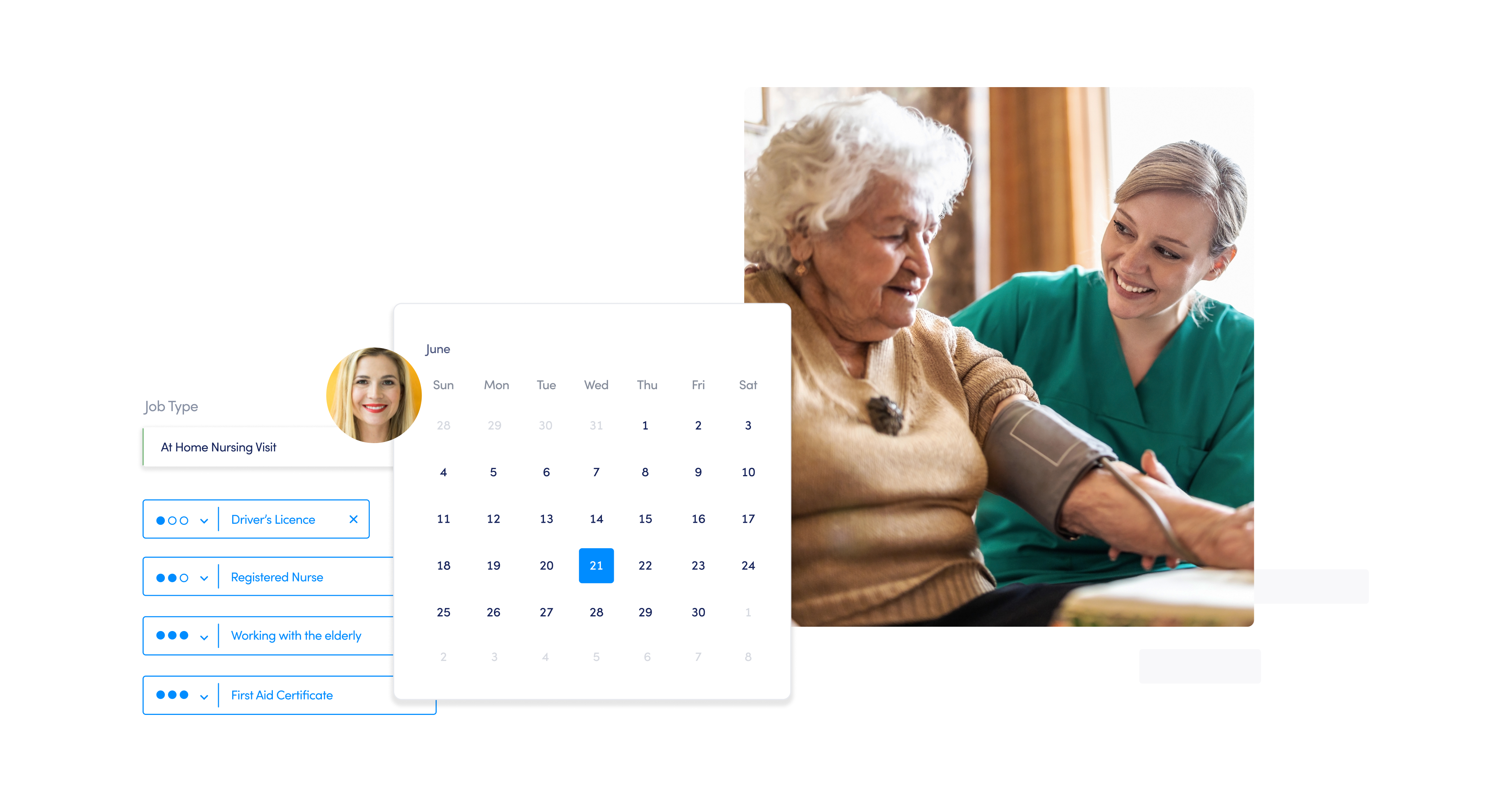How to prepare your home healthcare business for the aged care reforms
Off the back of a 2018 Royal Commission into Aged Care Quality and Safety in Australia, the government has recently announced a $17.7 billion support package and a 5-year aged care reform plan.
The Royal Commission looked into the quality of aged care services across the country, and whether those services meet (and will continue to meet) the needs of ageing Australians. The result was a comprehensive report detailing 148 recommendations which were used to inform the development of the new plan.
It’s particularly timely as more than 5 million baby boomers approach their golden years, with many wishing to access care differently to earlier generations.
Schemes such as the NDIS have made it easier to utilise a broad range of services, while new capabilities in technology have added to an already growing demand for home healthcare services.
What’s in the aged care reform plan?
The aged care reform plan is centred around these 5 pillars:
- Home care
- Residential aged care services and sustainability
- Residential aged care quality and safety
- Workforce (growing a skills-based workforce)
- Governance (new legislation surrounding the sector)
Key investments include $6.5 billion to support 80,000 new home care packages; $3.9 billion to increase the amount of frontline care in aged care services; and $652 million to grow a skilled, professional and compassionate workforce.
With reforms being rolled out in stages over the next 4 years, new and established organisations in the sector will be looking at how the reforms impact them – as well as the opportunities it could present in terms of growth and driving better customer outcomes.
Why does technology play a role in the aged care reforms?
The government has noted that technologies are key to enabling “the delivery of better connected care and operational efficiency for providers”.
If certain recommendations in the Royal Commission’s final report are enacted as legislation, providers will need to account for a variety of new compliance requirements surrounding the quality and timeliness of how they deliver their services. This includes allied health providers, which are mentioned frequently throughout the report.
Under the government’s $17.7 billion package, there is the potential for grants to become available which will ultimately support organisations in undertaking necessary digital transformation.
Leveraging these grants to apply the right technologies will be an important step in enabling greater assurance of compliance, but also improved frontline worker safety as well as better customer care.
How can Skedulo help?
The ability to secure a grant, as well as the decision to invest in specialised technologies for organisations that are not eligible, will depend on being able to demonstrate how a new software or system can improve operations.
Particularly within the home healthcare sector, Skedulo’s unique capabilities have been proven across our rapidly expanding global customer base.
Skedulo has been purpose-built to empower organisations that manage a remote workforce, with features such as:
- intelligent scheduling for shifts and field work
- worker skills and attributes to get the right person in the right place at the right time
- artificial intelligence to minimise scheduler time and effort
- built-in navigation with best route suggestion
- digital records to reduce paperwork
- real time messaging and updates
- self-service appointment scheduling for customers
- real time access to critical information
One feature of Skedulo that particularly aligns with the suggested requirements in the Commission’s report, is the ability to coordinate multiple workers to deliver relevant care at the right stages of a customer’s healthcare journey. Workers can also leave comments for each other to ensure each person is fully aware of the last interaction with the customer and whether their needs have changed.
We’ve found businesses in the healthcare sector are able to achieve an impressive ROI in their first year of using Skedulo alone. This is due to efficiencies gained by being able to allocate right-fit workers to new jobs – reducing costs such as unnecessary travel time, and boosting productivity because workers are able to see more customers in a day.
To find out how Skedulo can help you upgrade your home healthcare operations in light of the new aged care reforms, simply book a free demo.




